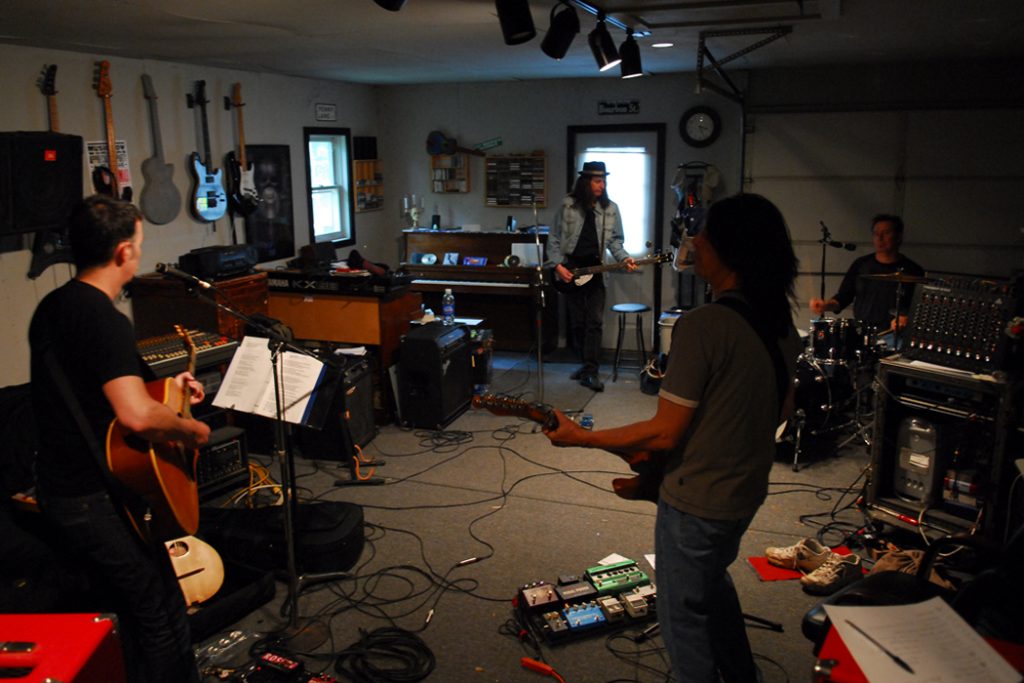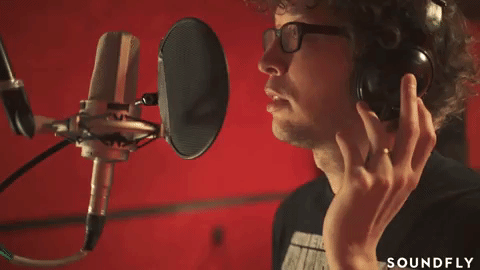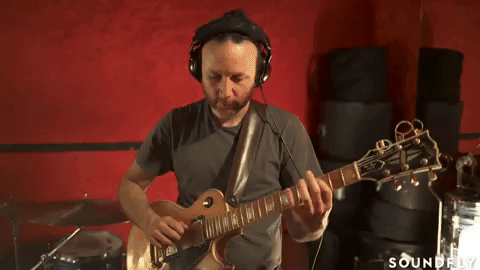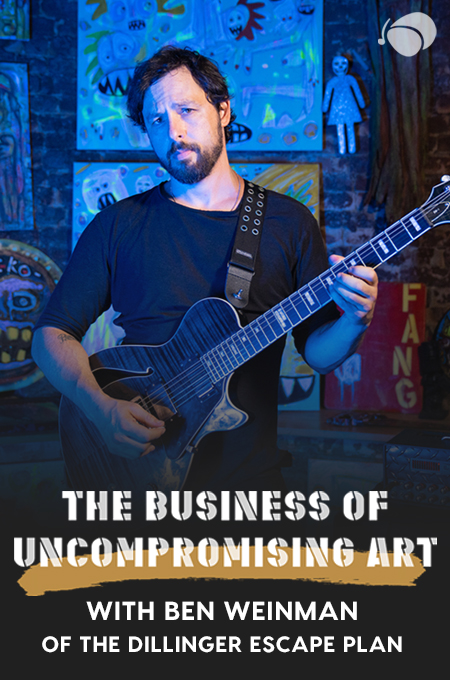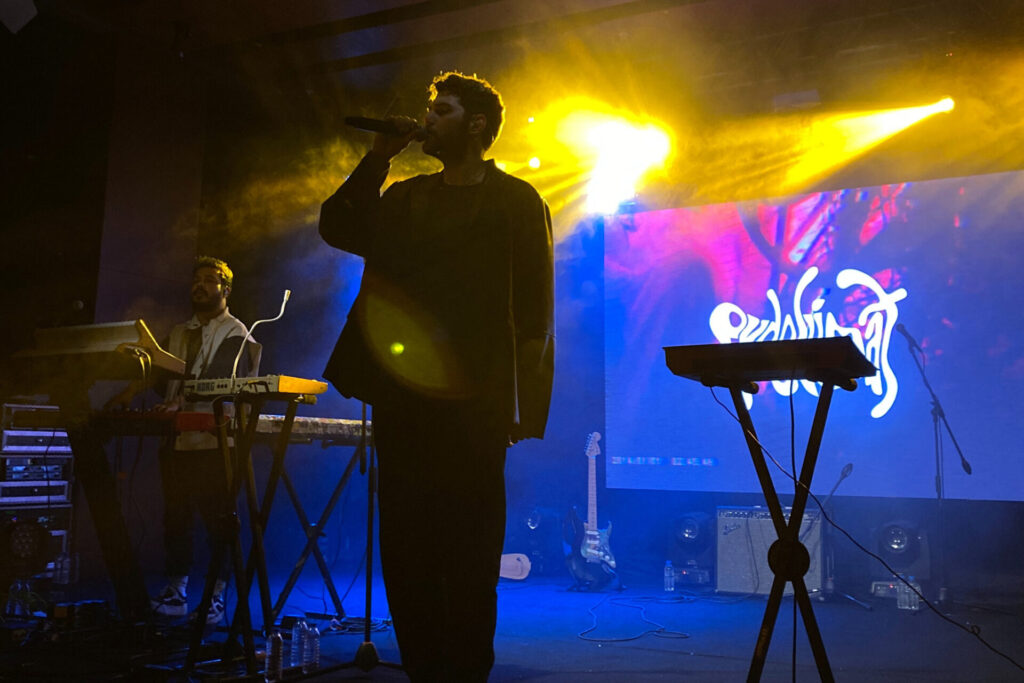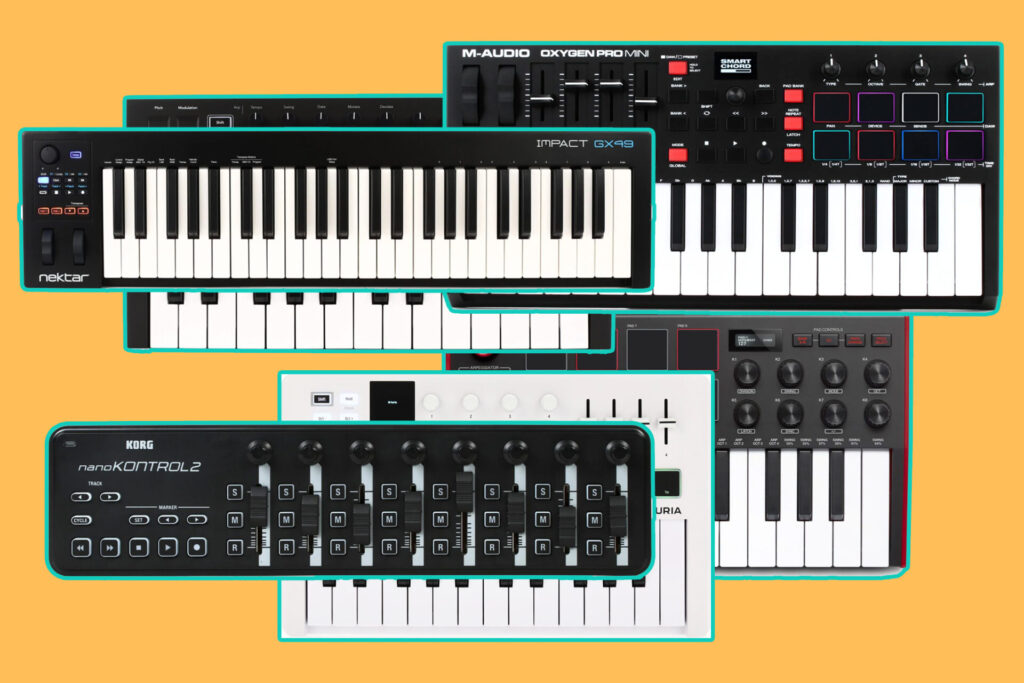+ Our brand new course with The Dillinger Escape Plan’s Ben Weinman teaches how to make a living in music without making sacrifices. Check out The Business of Uncompromising Art, out now exclusively on Soundfly.
It’s a fact of life in the world of music that somehow, someday, you will have to record. Whether that means going into a fancy, high-budget studio, or pressing record on a four-track at home, you won’t be able to avoid it forever. It’s a source of anxiety for many musicians, especially those who aren’t used to being in studio settings, mainly because it’s a totally different experience of playing music than, say, performing live or jamming in a garage, or even showing up to play in an orchestra.
The recording studio environment has its own set of rules and demands its own set of behaviors. How do you act? Will you be able to perform as well “on demand” as you do on stage? Listening to yourself play on headphones? What if you mess up?
These are valid and intimidating questions for musicians who haven’t yet had to battle the studio monsters. How do you even prepare for that battle? Well, that’s what I want to talk about, so let’s get you prepared for your first (or next) recording studio experience.
And if you’re really in need of some help with writing, recording, producing, or finishing a recording of your music, let us know. It can be super helpful to get a professional’s feedback and support in these times, and that’s why we created the Headliners Club, a short-term, goal-oriented coaching program designed to help you meet your next goals and scale them!
Start small, or do a trial run
First off, you don’t have to go and book a high-budget, super high-fidelity recording studio with a world-famous engineer right away. If you’ve got the money to burn and the time to lock out an entire week for recording, by all means, go right ahead. But for the rest of us, recording is a major investment for a band, and there’s a better approach out there than blowing everything you’ve saved up all at once.
Home studios, university studios where you can record with a student engineer, local community-focused studios — all of these are as common as dandelions on the musical landscape. I’m also willing to bet you already know somebody who can engineer a pretty good recording — whether a demo or a pared-down version of the real thing — at a pretty high level for a fraction of the price of a professional studio.
In both scenarios, it’s worth it to spend some time at a friend’s studio, getting to know the various pieces of equipment and what they’re used for, and getting a few basic tracks on tape to get a sense of how you sound in a studio setting, and how it feels to plunk yourself in front of a microphone.
The goal isn’t necessarily to cut a record, but just to get some experience under your belt so you know what you’re doing when you finally decide to spend real money. This will be much, much cheaper, but one of two great things will also happen: either you’re unhappy with the result and you learn what changes need to be made in advance, or you end up very happy with the result and skip the professional studio all together!
In the digital age, it’s actually incredibly easy to record and mix a great-sounding record with nothing more than what most home studios already have.
Practice your songs to a click track
Most musicians I know hate this, but the truth of the matter is a click track is your best friend in the studio. It makes editing and layering tracks so much easier. Even if you’re great with keeping time, without a click you’re bound to deviate to some degree. Find the ideal tempo for your song — this should be one where it doesn’t feel rushed, but still moves along and maintains the groove.
Practice to that tempo until your ears bleed — I suggest starting to do this several weeks before your session, rather than procrastinating. If you happen to be working with a producer, they’ll help you with this part of the process, too. If not, it’s all gonna be on you to prepare — but don’t worry, it’s totally doable, and can also be quite fun.
Bring a road map
Years ago, I went into the studio with my band. We intended to record a four- or five-song EP, at most, of material we’d been playing for months and were very comfortable with. I thought we had the arrangements down, but when we got into the studio, all of a sudden everyone had a million other ideas for how the song should sound “on record.”
The drummer wanted to push the tempo and give it more energy, the guitarist wanted an extended break with a Zeppelin-esque solo, and the bassist wasn’t ultimately happy with his bass line and wanted to write a brand new one on the fly. Suffice to say, this all should have been worked out beforehand, but instead it was being hashed out on the clock — so we were burning both money and time. This is, sadly, more common than you think.
A ton of artists out there thrive on the pressure cooker that is a recording studio, and have been known to create incredible masterpieces in that frenetic energy, but for most of us, we just want the dang songs to sound great. Why create roadblocks for no reason?
If you have a band, make sure everybody is on the same page and any ideas have been fully hashed out before the meter starts running at the studio. If you’re a solo act, make sure your song arrangement is planned out beforehand, or at least factor in time to work that out with hired musicians or open-ended collaborations.
Take a tour of the space
If you’re dead-set on going into a big budget studio and you still have the jitters, ask them if you can pop by and see the place. In fact, I recommend doing this no matter what the situation is, for any studio anywhere.
Meeting in advance and touring the space will get your mind going with ideas ahead of time. It opens a line of communication between you and the engineer that may solve problems before they even arise — and most of all, it will give you peace of mind. Knowing what to expect before the big day is the best way to come to grips with the recording studio jitters. Plus, you may even decide that particular studio isn’t for you. In which case, congrats, you’ve dodged a bullet! It’s all about how you feel and where you feel most comfortable being creative. You should never feel rushed or pressured!
Remember to respect the studio’s time, as well as your own!
Respect the engineer’s time — and your own. Arrive a tad early so you’re not flustered. Be warmed up in advance — do whatever exercises you need to do to get yourself in the appropriate headspace. Don’t be rude and berate those you’re working with — in other words, be kind, genial, and respectful. Being sober is a good idea, too. Although some musicians think they can function at their best when intoxicated, the truth is that they probably honestly can’t. Odds are, this will also annoy the engineer or studio manager, and they may ask you to leave… and try getting that refund!
Everybody gets the jitters. Just prepare as much as you can, and do your best the day of. Get plenty of rest, stay hydrated, and remember to try to relax and have fun!
Rev Up Your Creative Engines…
Continue your learning with hundreds of lessons on songwriting, mixing, recording and production, composing, beat making, and more on Soundfly, with artist-led courses by Kimbra, RJD2, Com Truise, Kiefer, Ryan Lott, and Ben Weinman’s The Business of Uncompromising Art.
